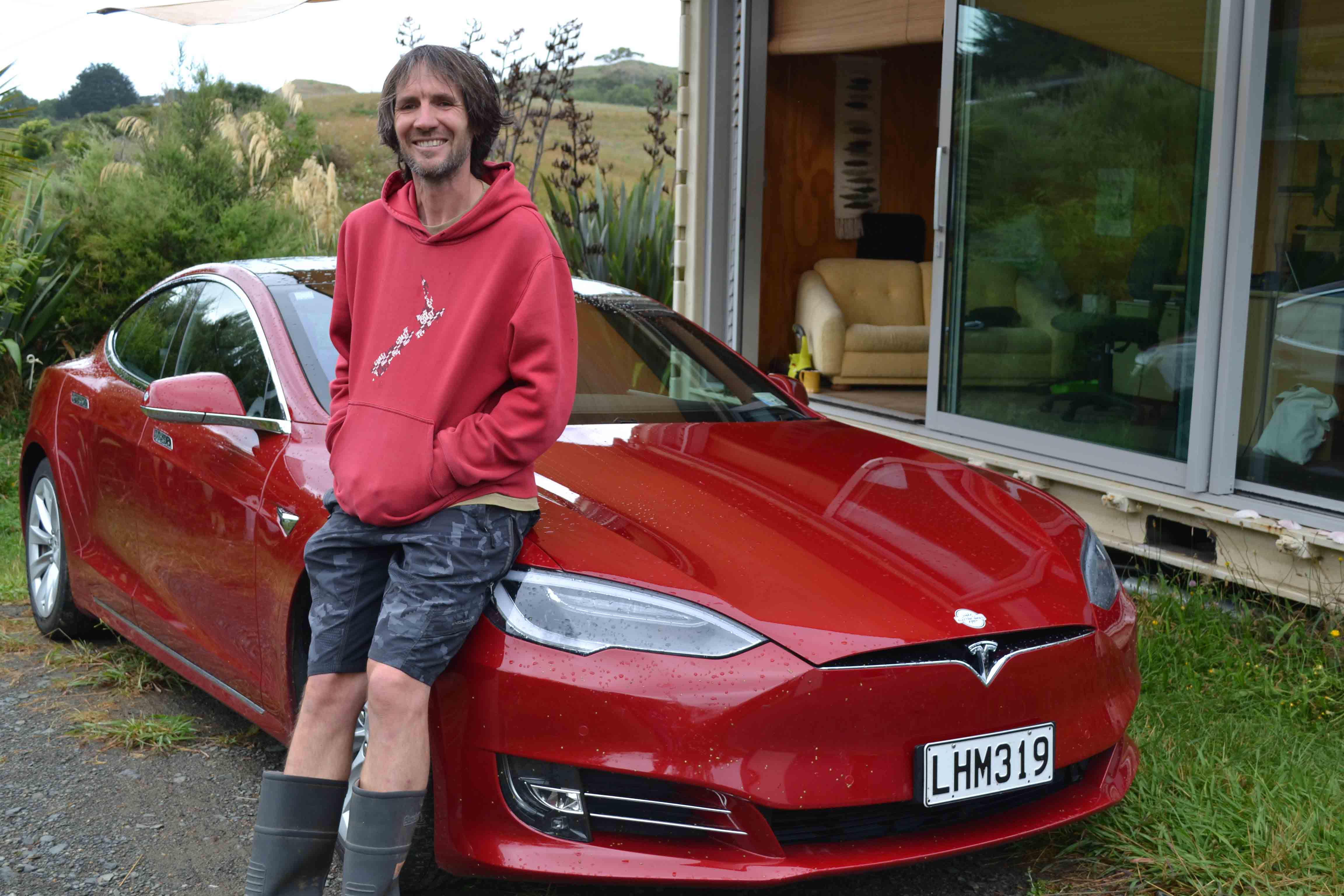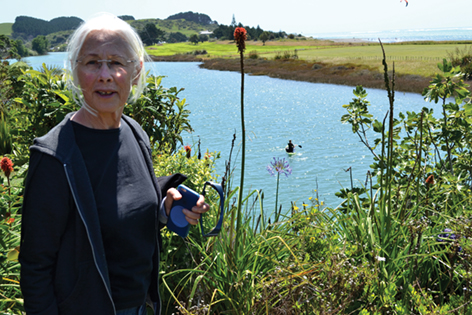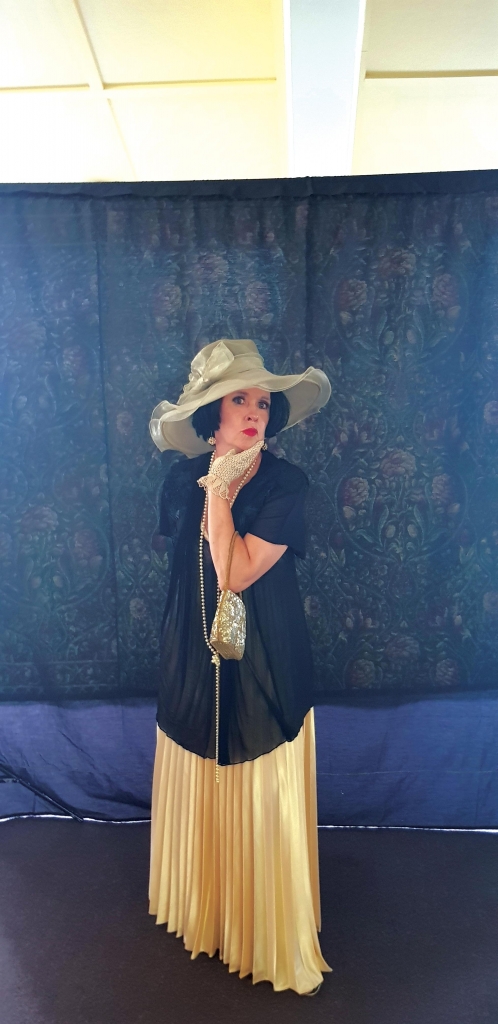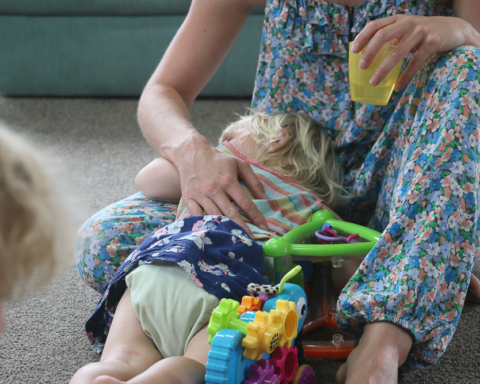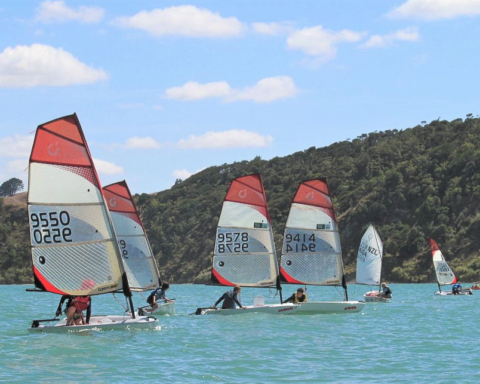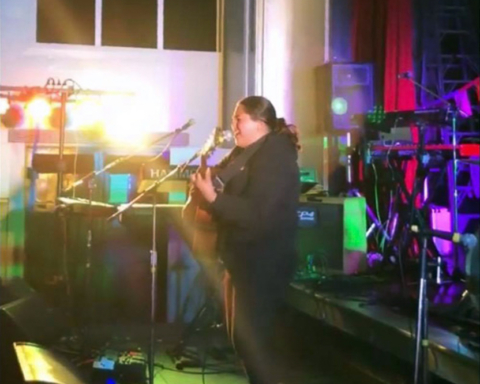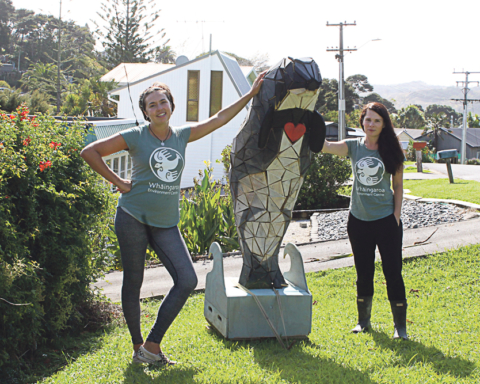Raglan engineer and self-confessed “mad inventor” Niall Darwin drives an electric car that he reckons is faster than the Ferrari he wanted as a teenager.
But it’s been a long and slow road to get there, costing more time and money than he ever could’ve imagined.
The Greenslade Rd resident who lives off-grid and is proud to own nothing that runs on petrol – from cars and e-bikes to a ride-on lawnmower he uses around the two-acre property – describes his year-long legal battle against electric car giant Tesla as a “huge, horrible project”.
And while Niall’s now happy with what he’s got – a rebuilt Tesla Model S “full of communication” at the touch of a button and with speed to spare – he’s very unhappy with the process which drove him to take extreme measures.
Niall says Tesla essentially “stonewalled” him at every turn after he plugged in his rebuilt car only to find, contrary to an email from a Tesla Sydney executive when he bought the wreck in Australia back in 2017, there was no supercharging and no software support.
“They don’t want people to have rebuilt cars,” he told the Chronicle. And he says that to make things worse Tesla logged into his car without permission to turn off supercharging, which is about four times quicker than fast charging.
As he colourfully described Tesla’s action on national television recently, “that’s a bit like your average Ukrainian hacker coming into your computer and stopping it from working”.
After losing his legal case Niall was forced to find a workaround and pay someone in the United States big dollars to hack his own car so he could manage and control it himself.
Tesla’s need for control of the technology is “quite toxic”, says Niall. He was appalled to realise the American company on a mission to accelerate the world’s transition to sustainable energy would simply write the car off.
“They were willing to waste that much embodied energy.”
Niall told Newshub on television channel Three that the experience has left him with a really bad taste in his mouth from a company he thought was trying to change the world.
“It goes against their spin,” says Niall, who when he’s not battling Elon Musk and his 45,000 employees simply enjoys “playing” with batteries.
Niall has his own battery that literally runs his life from workshop to house to car, and is currently working on bettering batteries to upgrade older electric vehicles like his 2011 Nissan Leaf.
While he could’ve done without an experience that he says took up a lot more of his life than it needed to, Niall’s now happy to have a fully functional electric vehicle and to be “divorced” from Tesla, with all the service information it was so unwilling to share now at his fingertips.
“It’s about being able to look after, take control, of what you own,” he stresses, disillusioned at how a big corporation like Tesla can monopolise the technology.
Edith Symes
